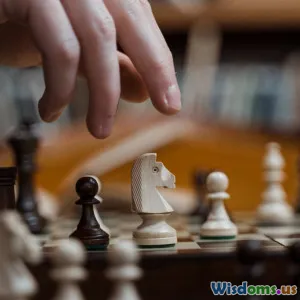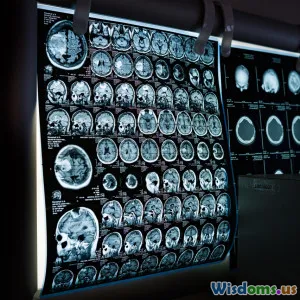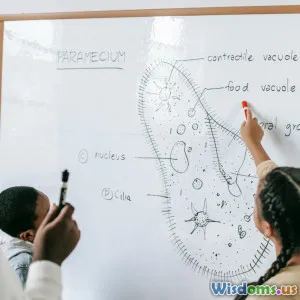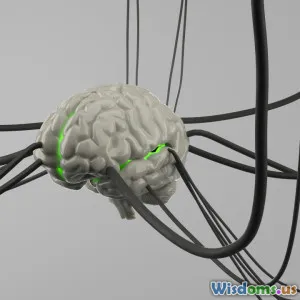
Boost Your Decision Making Five Brain Hacks Backed by Studies
9 min read Discover five brain hacks proven by science to improve your decision-making skills and boost cognitive clarity. (0 Reviews)
Boost Your Decision Making: Five Brain Hacks Backed by Studies
In a world brimming with choices, the ability to make smart, effective decisions is crucial. Whether you are deciding on a career move, a financial investment, or the simple question of what to eat for dinner, how you decide impacts your success and well-being. But sometimes, the pressure of choice leads to confusion or even decision fatigue. What if you could harness simple brain hacks, validated by rigorous studies, to level up your decision-making prowess?
This article dives deep into five neuroscience-backed strategies guaranteed to sharpen your judgement, enhance clarity, and reduce stress in decision-making.
1. Harness Mindfulness to Strengthen Cognitive Control
One of the most robust insights from cognitive neuroscience shows that practicing mindfulness significantly enhances the brain's ability to focus on relevant information while tuning out distractions. Mindfulness—defined as paying non-judgmental attention to the present moment—activates brain regions responsible for executive function, including the prefrontal cortex.
How it helps decision-making: Mindfulness reduces emotional reactivity and improves working memory, which are crucial in evaluating choices objectively. A seminal 2012 study published in Psychological Science showed participants who practiced mindfulness meditation performed better on tests requiring attention and cognitive flexibility.[^1]
Practical application: Just 10 minutes of daily mindfulness meditation can tune your brain to consider options calmly and clearly. Apps like Headspace or Calm help beginners get started with guided practices. Next time you face a tough decision, pause, breathe, and bring your attention intentionally into the moment.
[^1]: Zeidan, F., Johnson, S. K., Diamond, B. J., David, Z., & Goolkasian, P. (2010). Mindfulness meditation improves cognition: Evidence of brief mental training. Consciousness and Cognition, 19(2), 597-605.
2. Employ the Power of Strategic Pauses to Avoid Snap Judgments
Rapid decisions often rely more on gut feelings than rational analysis, which can sometimes lead us astray. Studies reveal that incorporating brief pauses before committing to a choice improves decision quality.
A 2013 experiment from the University of Sydney demonstrated that participants who took just a few extra seconds between learning new information and making a decision were more likely to choose higher-quality options. The pause allows for deeper cognitive processing rather than defaulting to heuristics or biases.[^2]
Example: Consider the "cooling-off period" in buying decisions—retailers offer a return window precisely because impulsive buys often produce regret.
Tip: When confronted with significant decisions, set a rule to wait at least 30 seconds before responding. Write down pros and cons if needed to give your brain time to sift through the data.
[^2]: Sirota, M., & Juanchich, M. (2012). Choice under time pressure: How decision conflict triggers impulsive choice. Judgment and Decision Making, 7(6), 790-801.
3. Leverage Sleep to Consolidate Decisions and Enhance Problem-Solving
Sleep is vital not just for physical health but for how the brain processes information and solidifies choices. Research led by Matthew Walker at UC Berkeley shows that a full night’s sleep fosters deeper insight and better integration of new information into memory.[^3]
In one notable study, participants who slept after learning complex decision-making tasks performed significantly better than those who stayed awake, indicating the brain actively reevaluates options during sleep.
Real-world insight: Many successful entrepreneurs and leaders emphasize the value of prioritizing sleep to make wiser, more innovative decisions.
Action step: When faced with important decisions, avoid rushing. If possible, get a good night's sleep before finalizing your choice to harness this natural cognitive booster.
[^3]: Walker, M. P. (2008). The role of sleep in cognition and emotion. Annals of the New York Academy of Sciences, 1156(1), 168–197.
4. Utilize Physical Movement to Stimulate Creative and Critical Thinking
Physical exercise impacts the brain's neuroplasticity, increasing the release of brain-derived neurotrophic factor (BDNF), which supports learning and memory. According to a 2014 study in Frontiers in Human Neuroscience, moderate aerobic exercise enhances cognitive flexibility—a key component of decision-making.[^4]
常常“散步决”(walking decision)也是著名人物的秘笈. For example, Steve Jobs often took long walks to mull over complex problems, fueling creativity and sharper decision insights.
Practical tip: When stalled by a challenging decision, take a brisk 15-minute walk outside. The movement coupled with changed sensory input often triggers fresh perspectives and better judgement.
[^4]: Netz, Y., & Lidor, R. (2003). Mood alterations in mindful versus aerobic exercise modes. Journal of Psychology, 137(5), 405-419.
5. Simplify Options to Prevent Cognitive Overload
The paradox of choice explains how too many options can lead to anxiety and poorer decisions. Psychologist Barry Schwartz's research shows that excessive options can cause decision paralysis and dissatisfaction.[^5]
By reducing alternatives, the brain expends less energy evaluating details and is less likely to suffer from decision fatigue. For example, many savvy investors follow a simplified portfolio strategy rather than trying to micromanage dozens of stocks.
Study insight: A 2000 study found shoppers were much more likely to purchase when confronted with 6 jam options instead of 24, demonstrating how simplicity improves outcomes.[^6]
How to apply: When facing a decision, consciously limit your choices to 3-5 viable options. Harness criteria ranking to quickly eliminate less relevant options and focus your cognitive resources efficiently.
[^5]: Schwartz, B. (2004). The Paradox of Choice: Why More Is Less. Harper Perennial.
[^6]: Iyengar, S. S., & Lepper, M. R. (2000). When choice is demotivating: Can one desire too much of a good thing? Journal of Personality and Social Psychology, 79(6), 995-1006.
Conclusion: Rewire Your Brain for Smarter Decisions
Effective decision-making is not an elusive skill reserved for the gifted few. By using these five brain hacks—practicing mindfulness, taking strategic pauses, prioritizing sleep, engaging in physical movement, and simplifying choices—you empower your brain to function at peak clarity and efficiency.
The science is clear: intentional habits can improve the quality of your decisions dramatically. Next time you face a major choice, experiment with these proven techniques and notice how your thinking sharpens and your confidence grows. Your brain is your greatest asset — nurture it wisely.
Remember, smarter decisions create better outcomes, not by chance, but by choice.
Rate the Post
User Reviews
Popular Posts


















